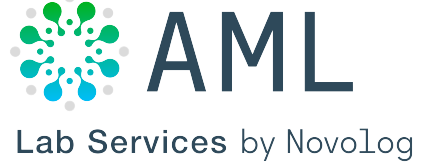|
Test Name
|
Fibrinogen
|
|
Test Code
|
143
|
|
Unit
|
mg/dL
|
|
Station
|
Coagulation
|
|
Synonym Name/Abbreviation
|
Factor I
|
|
CPT Code
|
85384
|
|
Performing Facility
|
American Medical Labs, Herzliya
Pituah
|
|
Analyzer
|
Siemens, Sysmex CA1500
|
|
Test Method
|
Photo-optical
|
|
AML Preferred Tube
|
Blue top Na-Cit 3.2%
|
|
Collection/ Storage
Instructions
|
Collection tubes must be filled to completion to ensure a
proper blood to anticoagulant ratio. The sample should be mixed
immediately by gentle inversion at least six times to ensure adequate
mixing of the anticoagulant with the blood. When noncitrate tubes are
collected for other tests, collect sterile and nonadditive (red top) tubes
prior to citrate (blue top) tubes. Any tube containing an alternate
anticoagulant should be collected after the blue-top one. Gel-barrier
tubes and serum tubes with clot initiators should also be collected after
the citrate tubes. Centrifuge and carefully remove the plasma using a
plastic transfer pipette. Transfer the plasma into a transport tube.
Stability: test must be performed immediately after blood draw. If not,
freeze at -20 oC
2 weeks or -70oC 6
months.
|
|
Min. Volume
|
1 mL Plasma
|
|
Comments
|
Acute phase reactant. Fibrinogen becomes elevated during
acute phase reactions and pregnancy. As with C-reactive protein, elevated
fibrinogen could be associated with increased risk of
MI.
|
|
Turn-Around-Time
|
One day
|
|
Intended Use
|
Identify congenital afibrinogenemia, disseminated
intravascular coagulation, and fibrinolytic
activity.
|
|
Limitations
|
Increased in patients on oral contraceptives. Interpretation
of results may be limited if patient is receiving anticoagulant
therapy.
|
|
Patient Preparation
|
Patient should not
receive heparin within 1 hour of specimen collection; patient
should not excercise.
|
|
Reasons for Rejection
|
Clotted specimens, grossly hemolytic specimens, samples that
undergo freeze-thaw cycles,
tubes <90% full.
|
|
Adult Reference Ranges
|
200 to 400
mg/dL
|
